How to send Slack notifications on DAG's status
As stated in how to send email notifications , Airflow allows multiple ways to inform users about DAGs and tasks status.
Furthermore, it's important to understand Airflow handles these 4 status (
failure
,
retry
,
success
and
missed SLA
) via callbacks. You can learn more about them
here
.
Below we explain how to use those callbacks to send Slack notifications.
Prepare Slack
To send messages in Slack, you must first create a Slack App, which will act as a "bot" that sends messages. Visit https://api.slack.com/apps to start.
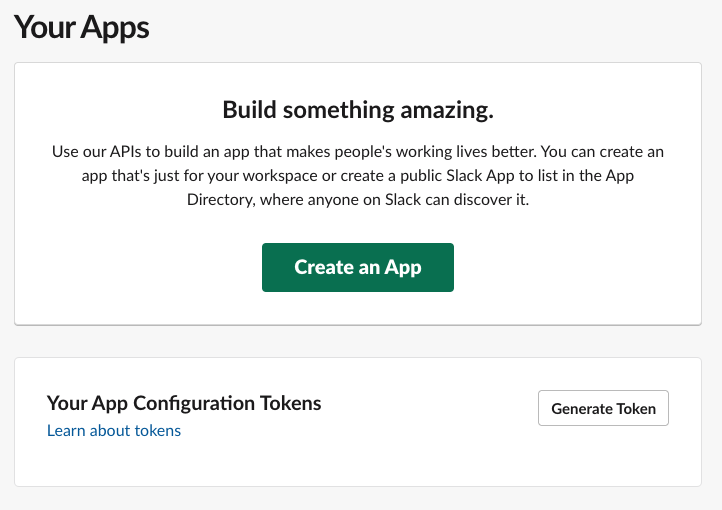
As it's the most basic type of application, you have to create it
from scratch
After that, give it a
name
and assign it to your desired
workspace
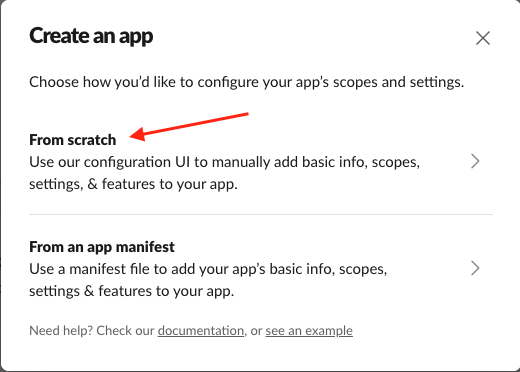
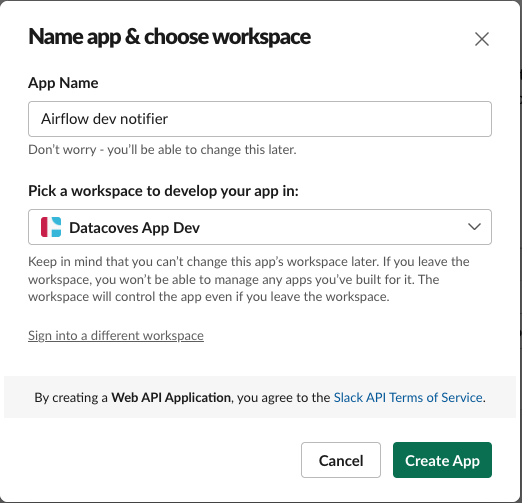
Once created, you must specify which features it will use. In order to send messages to your workspace channels,
Incoming Webhooks
is the only mandatory one.
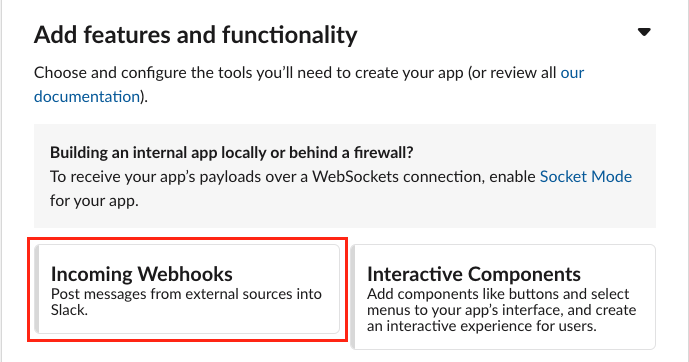
In the
Incoming Webhooks
configuration screen, you must
toggle
the On/Off slider for the settings to appear. Once that's done, you can
Add New Webhook to Workspace
, where you will create
one webhook for each channel
you want to send messages to.
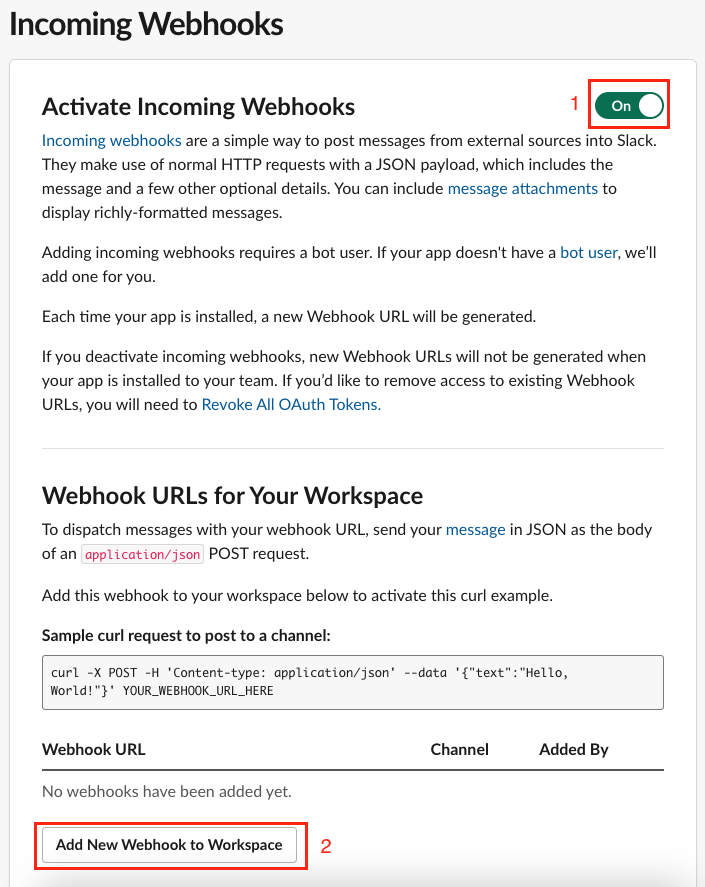
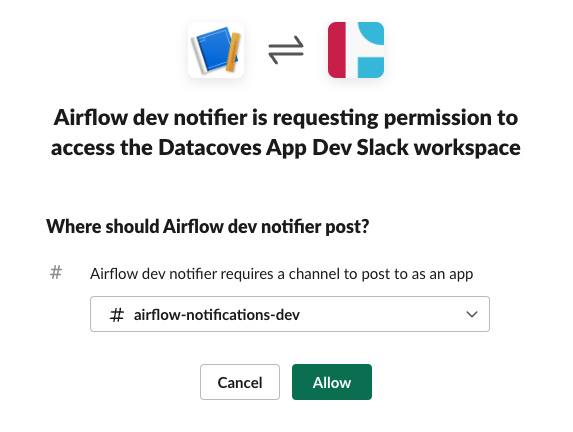
Once assigned a channel, your Incoming Webhook configuration screen will change to show your webhook
URL
and
Key
The standard syntax of these are
url/key
, in our example:
https://hooks.slack.com/services
followed by
T05XXXXXX/XXXXXXXXX/XXXXXXXXX
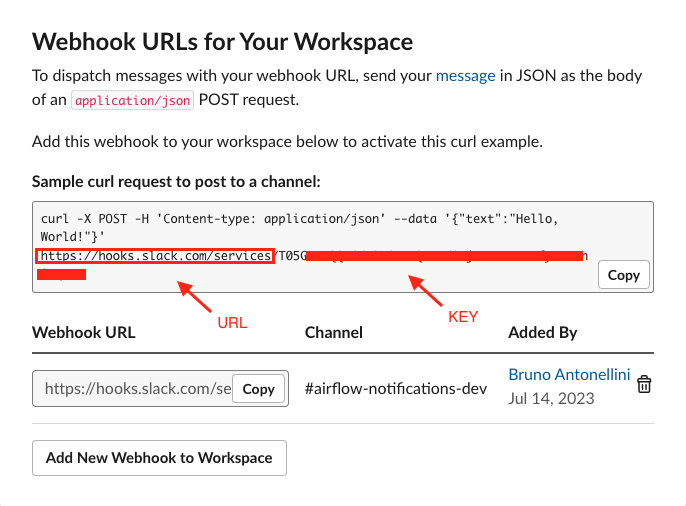
Now your Slack App is ready to send messages to
#airflow-notifications-dev
via webhooks.
Prepare Airflow
Create a new Integration
In Datacoves, create a new integration of type
Slack
by navigating to the Integrations admin page.
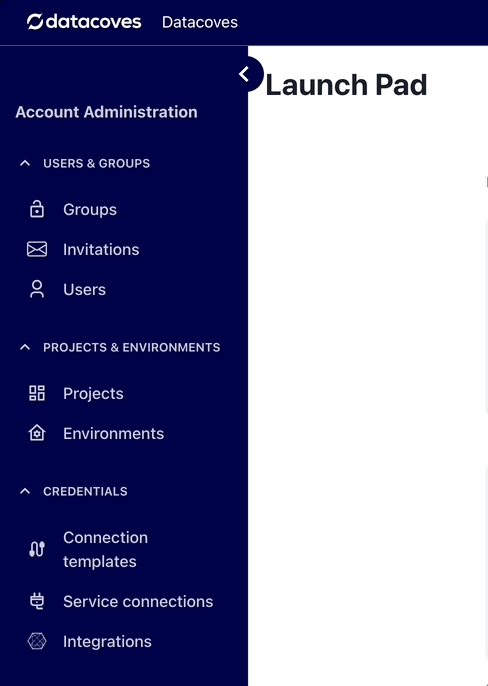
Click on the
+ New integration
button.
Provide a name and select
Slack
.
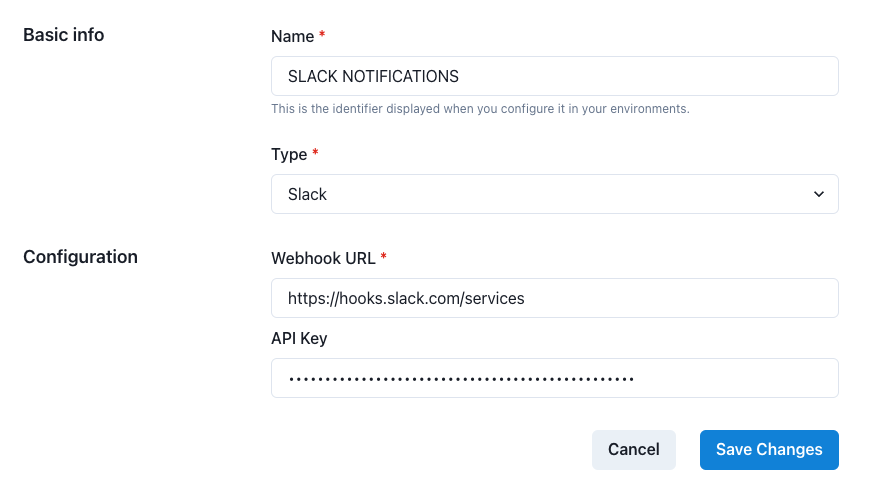
Provide the required details and
Save
changes.
Tip
The name you specify will be used to create the Airflow-Slack connection. It will be uppercased and joined by underscores ->
'SLACK NOTIFICATIONS'will becomeSLACK_NOTIFICATIONS. You will need this name below.
Add integration to an Environment
Once the
Slack
integration is created, it needs to be associated with the Airflow service within a Datacoves environment.
Go to the
Environments
admin screen.
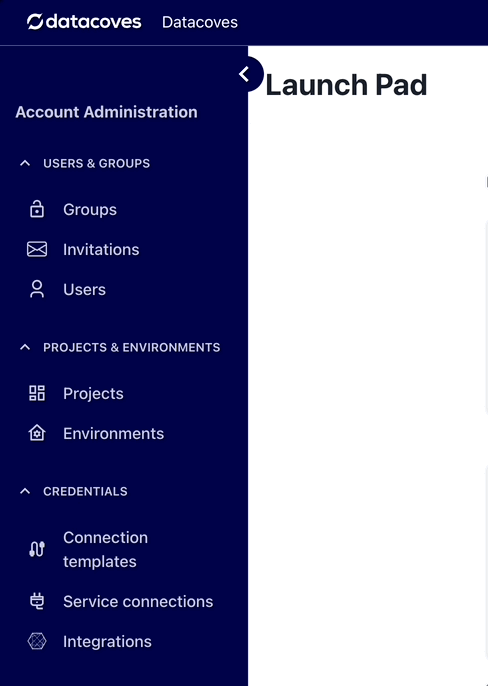
Edit the environment that has the Airflow service you want to configure and click on the
Integrations
tab.
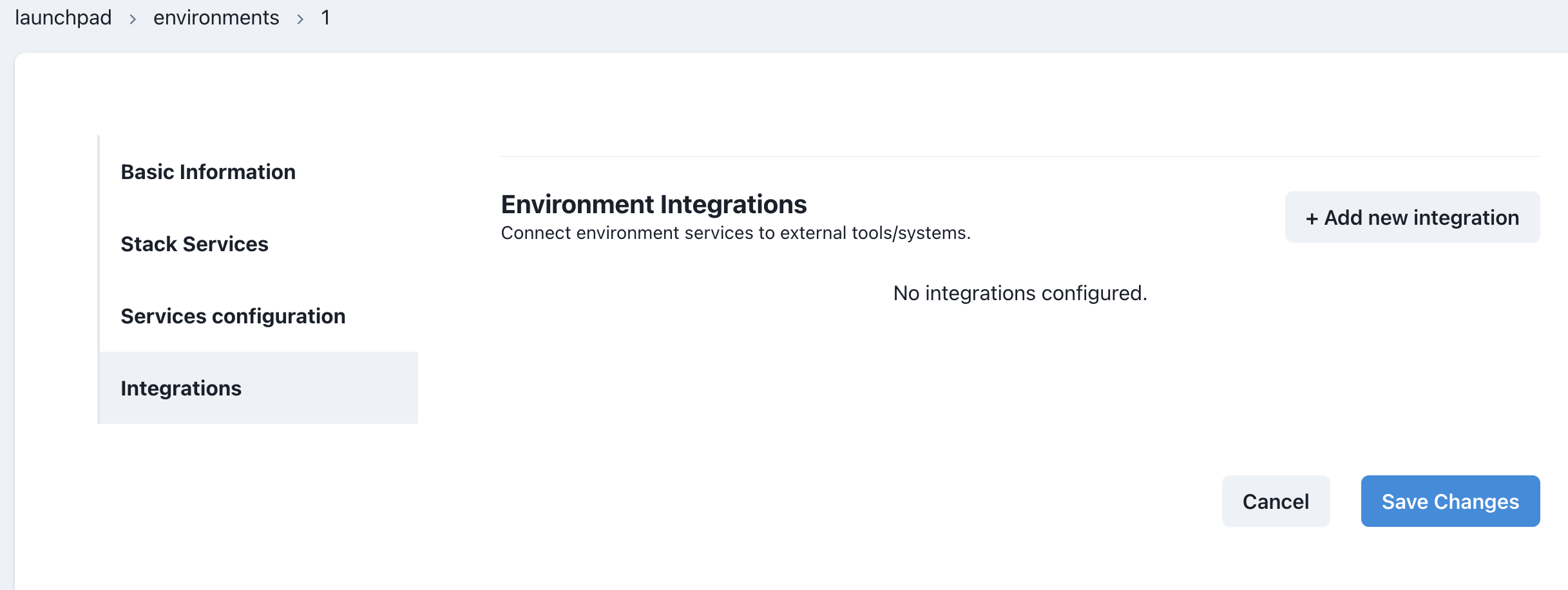
Click on the
+ Add new integration
button and select the integration you created previously. In the second dropdown select
Airflow
as the service.

Save
changes. The Airflow service will be restarted and will include the Slack configuration required to send notifications.
Implement DAG
Once Slack and Airflow are configured, you can start using the integration within Airflow Callbacks to send notifications to your Slack channel.
Slack will receive a message with a 'Logs' link that users can click on and go directly to the Airflow log for the Task.
Callback Configuration
In the examples below, we will send a notification on failing tasks or when the full DAG completes successfully using our custom callbacks:
inform_failure
and
inform_success
.
Note
In addition to
inform_failureandinform_success, we support these callbacksinform_failure,inform_success,inform_retry,inform_sla_miss
To send Slack notifications, in the Airflow DAG we need to import the appropriate callbacks and call them with:
-
slack_webhook_conn_id: the name of the Datacoves Integration created above -
text: to customize the message sent to Slack.
Attention
on_failure_callbackwill throw an error if using lists causing your task to fail.
Python version
from pendulum import datetime
from airflow.decorators import dag, task
from airflow.providers.slack.notifications.slack_webhook import send_slack_webhook_notification
# ✅ Define Slack notifications (These will send messages when the DAG succeeds or fails)
run_inform_success = send_slack_webhook_notification(
slack_webhook_conn_id="SLACK_NOTIFICATIONS", # Slack integration name slug -- double check in Datacoves integrations' admin
text="The DAG {{ dag.dag_id }} succeeded",
)
run_inform_failure = send_slack_webhook_notification(
slack_webhook_conn_id="SLACK_NOTIFICATIONS",
text="The DAG {{ dag.dag_id }} failed",
)
@dag(
default_args={
"start_date": datetime(2024, 1, 1),
"owner": "Noel Gomez", # Replace with your name
"email": "gomezn@example.com", # Replace with your email
"email_on_failure": True,
},
description="Sample DAG with Slack notification",
schedule="0 0 1 */12 *",
tags=["version_2"],
catchup=False,
on_success_callback=[run_inform_success],
on_failure_callback=[run_inform_failure],
)
def yaml_slack_dag():
@task.datacoves_dbt(connection_id="main")
def transform():
return "dbt run -s personal_loans"
transform()
# Instantiate the DAG
dag = yaml_slack_dag()
YAML version
description: "Sample DAG with Slack notification, custom image, and resource requests"
schedule: "0 0 1 */12 *"
tags:
- version_2
default_args:
start_date: 2024-01-01
owner: Noel Gomez
# Replace with the email of the recipient for failures
email: gomezn@example.com
email_on_failure: true
catchup: false
# Optional callbacks used to send Slack notifications
callbacks:
on_success_callback:
callback: airflow.providers.slack.notifications.slack_webhook.send_slack_webhook_notification
args:
- slack_webhook_conn_id: SLACK_NOTIFICATIONS
- text: Custom success message
on_failure_callback:
callback: airflow.providers.slack.notifications.slack_webhook.send_slack_webhook_notification
args:
- slack_webhook_conn_id: SLACK_NOTIFICATIONS
- text: Custom error message
# DAG Tasks
nodes:
transform:
operator: operators.datacoves.dbt.DatacovesDbtOperator
type: task
bash_command: "dbt run -s personal_loans"
Getting Started Next Steps
Start developing DAGs